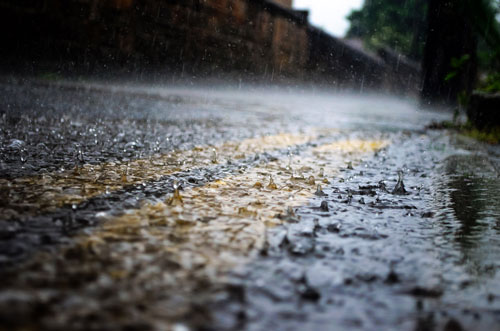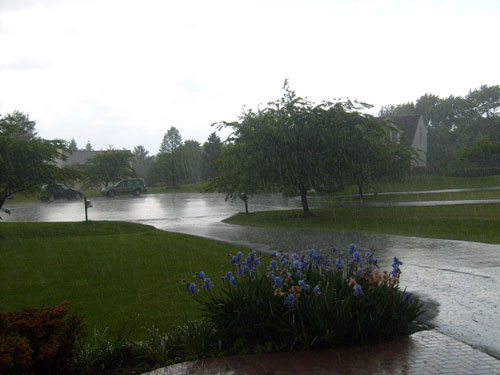The big storm has passed, and you look outside your home at the damage it has caused in your neighborhood. Tree branches look more like lawn ornaments strewn across the front yard. Broken glass on the street sparkles from the newfound presence of the sun. A few neighbors are outside walking around their vehicles in dismay. Yes, Mother Nature has wreaked havoc, but there is one dangerous aftermath of a storm that often goes unnoticed until it is too late.
We are talking about the serious implications of storm water on the quality of the water that comes out of your home’s faucets.

What Exactly is Storm Water?
The term seems easy to explain. Storm water is the remnants of the deluge left behind by Mother Nature. However, it is much more of a specific meaning than simply a tremendous amount of rain water.
Creeks, streams, and rivers depend on storm water to maintain a consistent flow of water. Storm water is rain and the runoff caused by melting snow that moves into nearby tributaries. During the time it takes to travel from the first splash to a flowing source of water, storm water has the potential to pick up a large number of different pollutants that taint the drinking water coming out of every faucet your home. In more rural areas, storm water can saturate the ground and move directly into a treated water supply. At Atlantic Blue Water Center, we offer a myriad of services to help ensure you and your family have access to clean water.
How Polluted Storm Water Affects the Water Supply
Your sense of taste comes from thousands of micro sensors on the tongue. Because of the overly sensitive nature of your sense of taste, it is easy to detect the presence of dangerous contaminants that produce inferior quality water. However, the negative impact of polluted storm water on your home’s water quality goes much deeper than a cloudy, putrid-tasting glass of home water.
It is your health that takes a hit every time you drink water that is tainted with polluted storm water. We are not talking about just an upset stomach or a driving headache. Polluted water that taints the water supply used by everyone in your neighborhood can produce long lasting health consequences. From acute cases of dysentery to debilitating bouts with cancer, the negative impact of storm water on your home’s water quality can leave devastating health consequences for years to come.

Storm Water Pollutants that Negatively Impact Water Quality
The potentially negative impact of storm water on your home’s water quality leaves us with one important question: Where does all the pollution come from that taints our drinking water? The answer is there are numerous reasons why storm water becomes polluted.
Here are the potential sources of contaminants that can taint your home’s water supply:
- Pesticides and herbicides
- Biodegradable waste
- Thermal pollutants
- Radioactive matter
- Sediment
- Toxic chemicals
As a recent addition to the list of potential contaminants is storm water, discarded pharmaceutical drugs can wreak havoc on a body’s immune system, as well as trigger a large number of different ailments. All it takes is for a rush of storm water to pick up several unused tablets and wash it into a water supply that comes from a poorly functioning municipal water treatment system.
Improve Your Water Quality at Atlantic Blue Water Center
You should never have to wonder if the storm water rushing by your home contains potentially harmful contaminants that enter your home’s water supply. At Atlantic Blue Water Center, we specialize in helping homeowners filter drinking water to produce pristine quality water that is healthy for the entire family. You can drop off a sample of your home’s drinking water, and our team of certified technicians will test it for pollutants. We also educate our customers about the science involved in your drinking water, as well as offer interactive classrooms that teach the basics of operating water filtration systems. Schedule a free water test today by calling us at (410) 751-9200 or simply bring a sample of your water in to be tested by lab specialists in our state-of-the-art laboratory.
